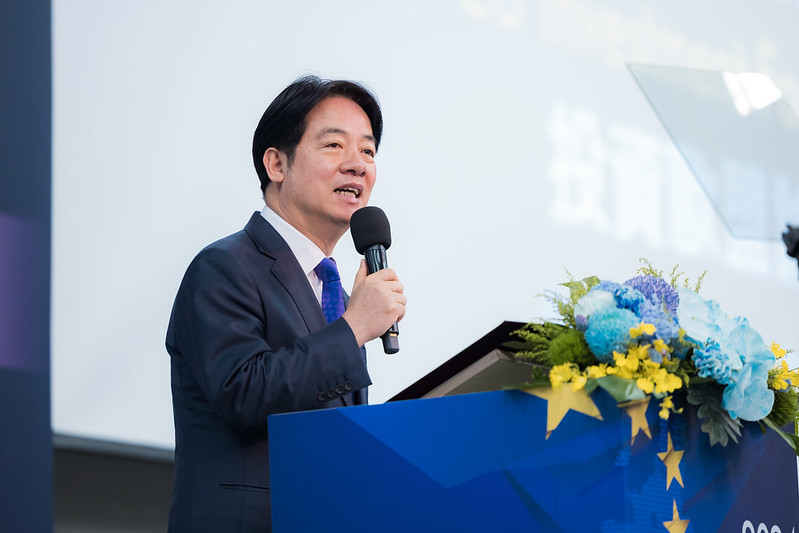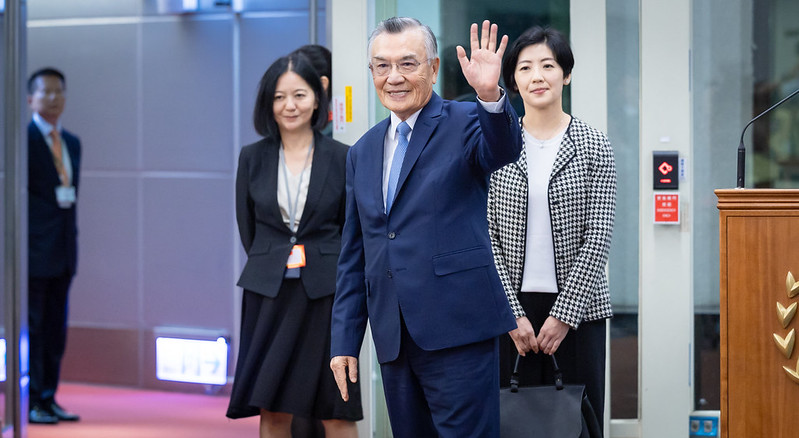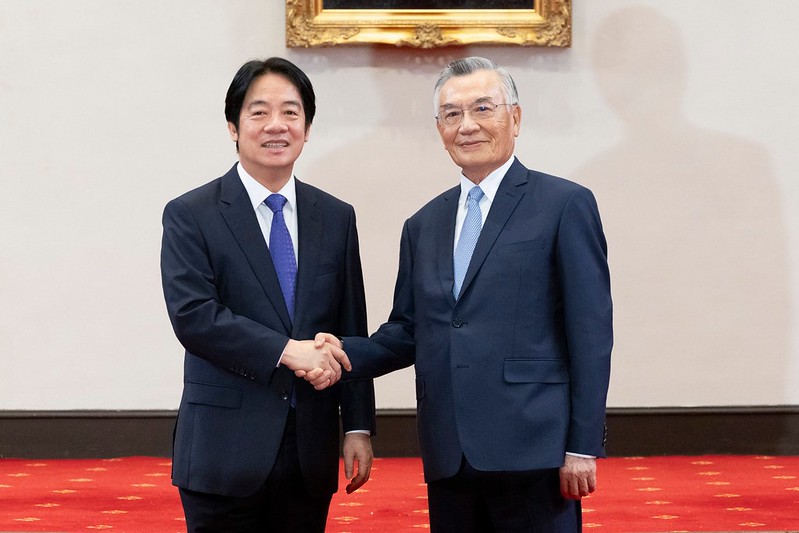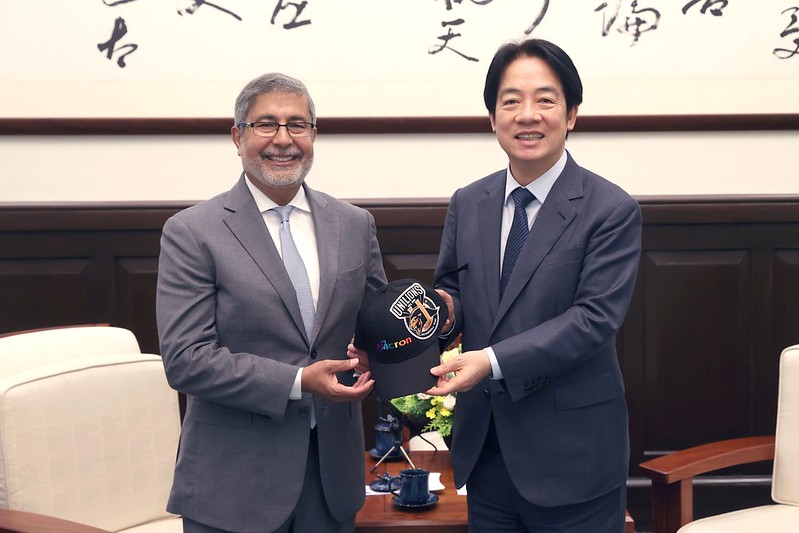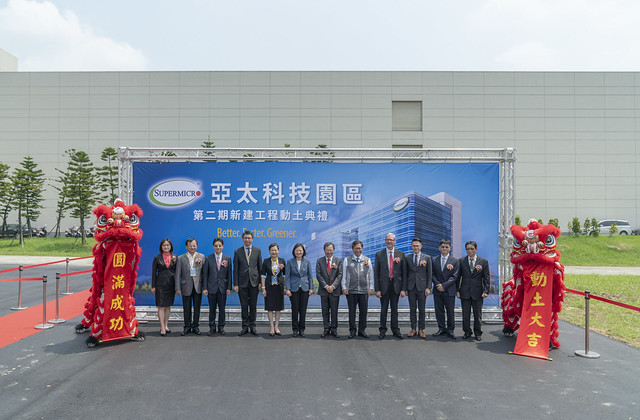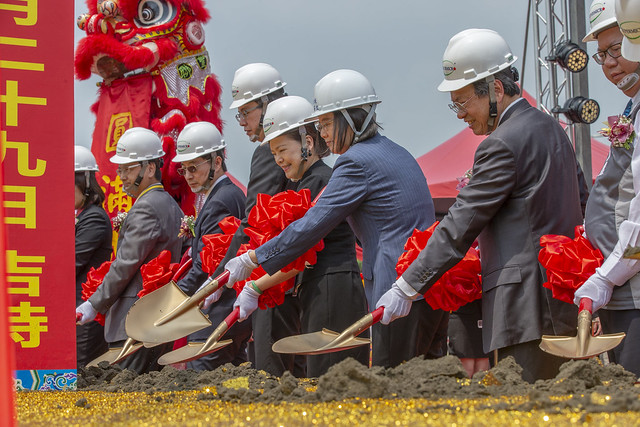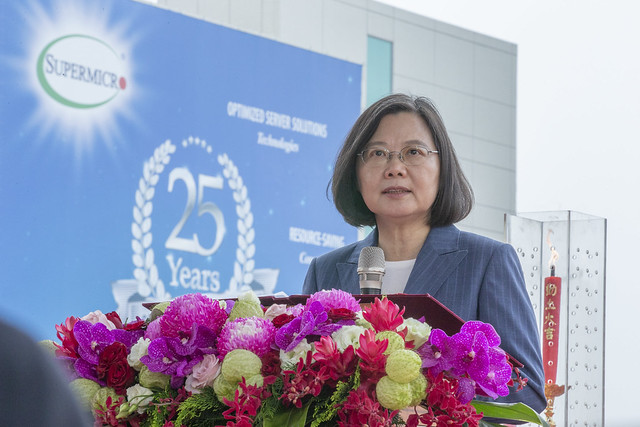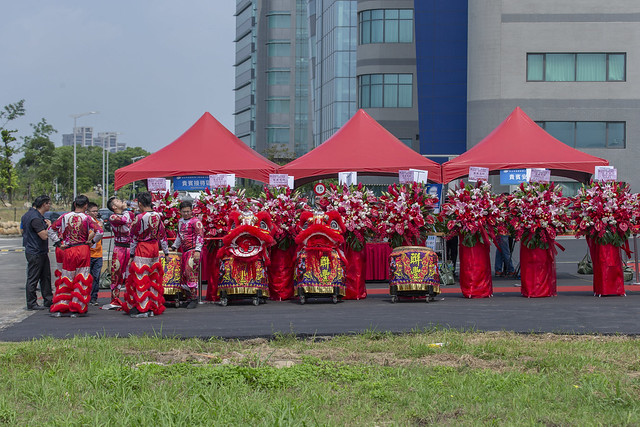News & activities
 News releases
News releases
While attending the groundbreaking ceremony for the second phase of a project to expand Supermicro's Science & Technology Park in Taiwan (Asia) on the morning of April 29, President Tsai Ing-wen stated that Taiwan is an East Asian operations hub for firms from around the world. Our country has robust industrial clusters, outstanding talent, highly developed infrastructure, and excellent intellectual property protection, so foreign firms that invest here are definitely making the right choice, she said.
In remarks, the president noted that NASDAQ-listed Supermicro is a global leader in server products, including innovative high-performance servers, corporate data center solutions, and green computing technologies.
The president pointed out that Supermicro's founder Charles Liang (梁見後), who is also the company's President and Chief Executive Officer, is an exemplary case of a Taiwanese person making it big in Silicon Valley. Supermicro's decision to invest in Taiwan is particularly significant in two key aspects. First, it feels like a return home. And second, of course, is the fact that it signals confidence in Taiwan.
Commenting on Taiwan's investment climate, President Tsai stated that Taiwan's placement in world investment climate rankings has moved significantly upward over the past three years thanks to deregulation, assistance for industrial restructuring, and tax code amendments. In the World Economic Forum's Global Competitiveness Report 2018, Taiwan ranked 13th, and in the Doing Business 2019 report (released by the World Bank in 2018), Taiwan also ranked 13th in the world for ease of doing business.
The president then explained that investments in Taiwan of NT$500 million or more by overseas Taiwanese and foreign nationals last year reached a combined total of NT$536.5 billion, up 31% from the previous year and the highest figure in recent years. "Investing in Taiwan," said the president, "is one of this year's proudest achievements."
The president mentioned that Supermicro's expansion of its Science & Technology Park in Taiwan (Asia) will entail an investment of NT$2 billion, and follow-up investments are expected to bring the total to NT$10 billion. The government is making a serious effort to develop the economy, and is very thankful to Supermicro's President Liang for his vote of confidence in Taiwan's investment environment, and for being willing to take part in our effort.
These investments, said President Tsai, are not just numbers in accounting books. They represent technical cooperation, R&D applications, and consideration of strategic alliances. Most importantly, they will create many thousands of job opportunities for software and hardware developers, as well as managerial and sales personnel.
Finally, the president congratulated Supermicro for finding the right place to invest. She reminded foreign firms interested in investing in Taiwan that Taiwan is an East Asian operations hub for firms from around the world, and has robust industrial clusters, outstanding talent, highly developed infrastructure, and excellent intellectual property protection. "Investing here is definitely the right choice," she said.
Among those present for the groundbreaking ceremony were Taoyuan City Mayor Cheng Wen-Tsan (鄭文燦), Economic Affairs Deputy Minister Mei-Hua Wang (王美花), and Supermicro President Charles Liang.
Responding to questions from reporters, President Tsai stated that this investment in Taiwan by a major international corporation will do more than just contribute to technological momentum, it will also create high-quality job opportunities. Both the Ministry of Economic Affairs and the Taoyuan City Government provided a lot of assistance throughout the process. The government's active stance and its regulatory adjustments have improved Taiwan's investment climate and encouraged many foreign and overseas Taiwanese firms to invest in Taiwan in recent years.
The president mentioned that foreign and offshore Taiwanese firms have been investing in Taiwan at a rapid pace this year, creating many outstanding job opportunities for young people. She also congratulated Taoyuan Mayor Cheng on the fact that so many firms are hoping to invest in Taoyuan, and said it reflects their recognition of the Taoyuan City Government's successful efforts to provide assistance.
When asked about the views of Chairman Terry Gou (郭台銘) of Hon Hai Precision Industry regarding national defense procurements, President Tsai stated that Taiwan has always contributed to regional peace and stability. Our attitude is clear. Taiwan supports regional peace and stability, and is a responsible member of the international community, and we hope that other countries in the region will also take responsibility on this front. Taiwan's actions in terms of national security are still centered mainly on self-defense needs. Since 2016, we have emphasized national defense self-sufficiency, and we seek to develop our own capabilities in the areas of both R&D and manufacturing. Local production of naval vessels and fighter jets is a particularly important part of national defense self-sufficiency, and we will seek to procure only what we cannot build ourselves. And even when we do resort to military procurements, they are for the purpose of self-defense. Chairman Gou would agree, said the president, that no one, regardless of nationality, should use military force to undermine peace.
Asked about the return of offshore Taiwanese firms and Taiwan's competitive advantages, President Tsai pointed out that Taiwan's key strengths are its deep pool of high-quality talent, and its highly developed infrastructure. Regarding Taiwan's legal framework, the president said that Taiwan is highly active in its protection of intellectual property rights, and performs up to international standards. Most importantly, she said, the government is determined to provide all necessary assistance to both overseas Taiwanese firms looking to return to Taiwan and foreign firms looking to invest in Taiwan, to ensure that their investments in Taiwan go smoothly, and they can finish investment preparations as quickly as possible.
On the topic of recent public demonstrations in Hong Kong against proposed amendments to the Fugitive Offenders Ordinance, and the deportation of Taiwanese citizens who had gone to take part in the demonstrations, President Tsai stated that when our citizens visit another country, the treatment they receive is a reflection of that country's attitude. The continual recurrence of such events shows that "one country, two systems" is not what the people of Hong Kong like or want. It is very important to be able to determine one's own way of life, and one's own government. This issue has shown yet again that neither "one country, two systems" nor "one country, one system" are options for Taiwan.
Commenting on the recent passage of US naval vessels once again through the Taiwan Strait, the president said that the Taiwan Strait is part of international waters. Ships and naval vessels from any country are allowed to pass through the strait. Whenever ships from any country pass through—and especially if they are naval vessels—our armed forces monitor the entire passage closely. In these particular international waters, many different countries do indeed engage in various activities, but our armed forces monitor closely, fully, and accurately.

